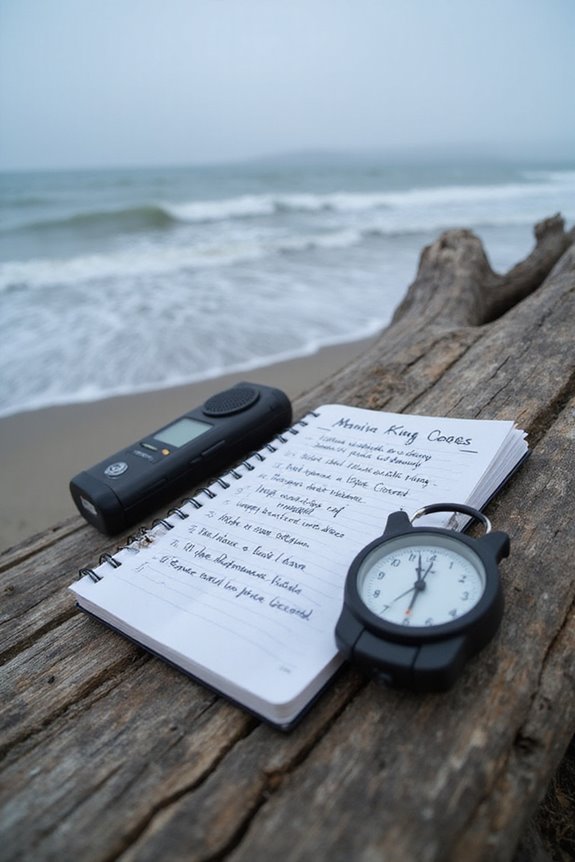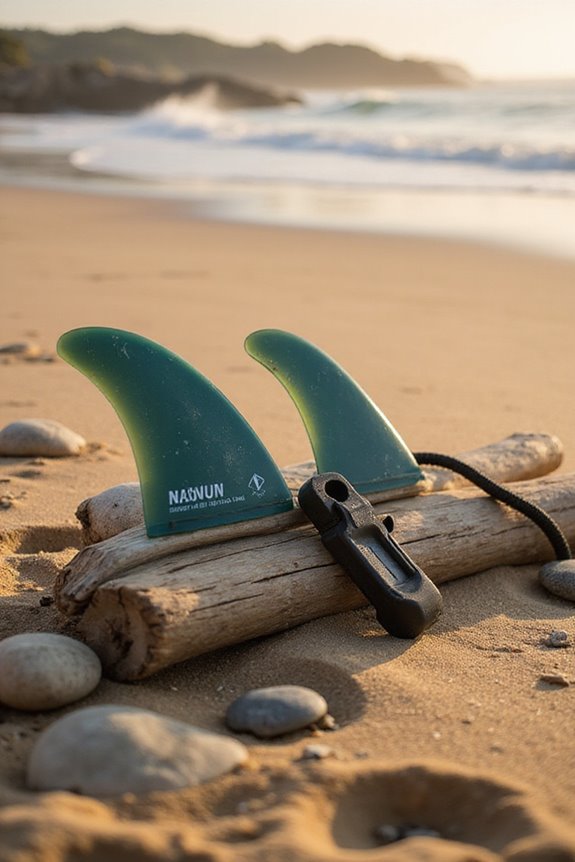To become proficient in stand-up comedy, we typically need a combination of lessons and practice that can total hundreds of hours. Most aspiring comedians start with structured lessons focusing on joke writing and performance skills. Along with consistent stage time, such as performing at open mics, we develop our unique style. Mastery often requires continuous learning and adaptability to audience feedback. As we move forward, we’ll uncover key insights about the skills and strategies essential for success.
Key Takeaways
- Basic proficiency in stand-up comedy typically requires around 150-200 hours of practice and lessons over 24-30 weeks.
- Achieving intermediate level skills may necessitate 600-750 hours of focused lessons and performances.
- Professional proficiency often demands 1,100 hours or more, combining lessons with extensive stage time.
- Engaging with coaches can enhance learning through personalized guidance and constructive feedback on performance.
- Regular participation in open mics and structured classes helps reinforce skills and build confidence over time.
Understanding the Journey to Stand-Up Comedy Competency
As we begin the journey to stand-up comedy competency, it’s important to recognize that this path requires dedication and time. Achieving proficiency typically demands years of consistent performances, often involving around 100 gigs annually.
Our comedic evolution involves both stage time and writing. Engaging with humor theories can enhance our understanding of what resonates with audiences. Each performance is brief, usually lasting about 5-6 minutes, necessitating focused preparation and creativity.
We must also be open to feedback from peers, as it helps refine our material. Balancing the quantity and quality of our experiences will contribute considerably to our development as comedians, ultimately leading to a more effective comedic voice on stage. Additionally, understanding essential surf etiquette can help cultivate a respectful atmosphere in any performance setting.
The Role of Coaches in Developing Your Comedic Voice

The role of coaches in developing our comedic voice is essential, as they provide personalized guidance tailored to our unique styles and experiences. Coaches help us discover our comedic perspective, ensuring we avoid “cookie-cutter” comedy that stifles individuality cultivation. They assist in crafting well-structured material while preserving our authentic voice.
Through constructive feedback, coaches enable us to refine our jokes for maximum audience impact without changing our humor style. They encourage us to trust our instincts and highlight our distinct point of view. In group settings, varied feedback helps prevent mimicry, fostering a supportive environment for growth. Ultimately, coaches empower us to express our individuality on stage, enhancing our overall performance. Additionally, engaging with experienced instructors in various fields can provide insights that further enrich our comedic journey.
Essential Learning Resources for Aspiring Comedians

Building upon the guidance provided by coaches, aspiring comedians can benefit from various learning resources that cater to their development.
Structured Online Classes
Many online platforms offer structured classes with 12-14 lessons, covering essential skills from joke writing to stage presence. These courses help us build a strong comedic foundation.
Free Resources
In addition to paid classes, free resources like podcasts, blogs, and guides can provide valuable insights. They offer practical tips for overcoming common beginner challenges and preparing for performances.
Open Mic Participation
Engaging in open mic events serves as both practice and learning. It’s vital for us to focus on delivering complete jokes rather than just ideas to build discipline and confidence on stage. Furthermore, understanding equipment compatibility and fit can enhance our overall performance and effectiveness in delivering comedic material.
Core Skills Needed for Stand-Up Success

Confidence Building
Developing self-assurance is essential; it positively influences audience perception. Balancing humility with confidence keeps us relatable.
Content Originality
Creating unique material is important. Regular writing practice helps refine our joke structure and maintain audience interest.
Performance Delivery
Mastering vocal variation and body language is key. Timing mastery and effective pacing guarantee we engage the audience.
Audience Engagement
Utilizing non-verbal cues and managing pauses can strengthen our connection.
Resilience Training
Embracing setbacks and adapting to crowd responses fosters long-term success.
Creative Experimentation
Constantly testing new jokes and delivery styles keeps our act fresh.
Adaptability Skills
Quickly adjusting to unexpected situations is critical for maintaining momentum. Incorporating elements of safety protocols in your performance can help ensure a smooth and enjoyable experience for your audience.
Typical Structure of Lessons and Practice Sessions

When we consider the typical structure of lessons and practice sessions for stand-up comedy, a well-organized approach is vital for effective learning. Our lesson structure should include key components: understanding joke formats, organizing routines, and practicing delivery.
During practice routines, we focus on running through chunks of material, refining timing and shifts. Each chunk typically lasts 90 seconds to 2 minutes, allowing us to build comedic tension.
As we gather jokes, it’s beneficial to create outlines that help with memorization while leaving room for improvisation. Frequent participation in open mics is essential, as it enables us to test our material live and adapt based on audience reactions. This iterative process enhances our overall performance and routine quality. Additionally, gaining insights into safety measures during performances can help manage stage fright and improve overall confidence.
Time Investment Estimates for Different Levels of Learning
Understanding the time investment needed for learning stand-up comedy can help us set realistic goals and expectations. Our time commitment will vary based on our individual learning pace and objectives.
- Basic Proficiency: We might need around 150-200 hours to achieve foundational skills, which can take 24-30 weeks with consistent practice.
- Intermediate Level: If we aim for more advanced proficiency, expect around 600-750 hours, requiring rigorous study schedules over several months.
- Professional Proficiency: For those pursuing mastery, a time investment of 1,100 hours or more could be necessary, depending on our prior experience and dedication. Additionally, just like in learning stand-up, finding the right fit and sizing in a wetsuit is crucial for performance and comfort during water activities.
Factors Influencing the Number of Lessons Required
Several factors influence the number of lessons we may need to achieve proficiency in stand-up comedy.
Cognitive Factors
Our intelligence level and prior knowledge can speed up learning. Different learning styles also affect how we absorb material.
Affective Factors
Motivation and self-confidence play significant roles; higher motivation typically leads to fewer lessons. Anxiety can hinder progress, requiring more lessons.
Personal Factors
Age and personality traits, like extroversion, can impact our learning speed. Previous experiences in comedy may also reduce lesson needs.
Environmental Factors
Being in an immersive environment and having access to quality resources can enhance our learning.
Cultural Factors
Familiarity with the target culture and community can facilitate communication, lowering the number of lessons required.
The Importance of Continuous Practice and Feedback
The journey to mastering stand-up comedy isn’t just about attending a set number of lessons; it’s vital that we incorporate continuous practice and feedback into our learning process. Regular practice enhances our skills by strengthening neural pathways and creating muscle memory. This consistent effort allows us to correct errors and avoid compounding mistakes.
Feedback mechanisms play an important role in our development. Timely, specific feedback helps us identify performance gaps and adjust our techniques. Constructive feedback fosters a growth mindset, encouraging us to persevere and improve. Additionally, engaging with peers or instructors provides new perspectives that self-assessment might overlook. By intertwining practice and feedback, we can achieve effective skill enhancement and adaptability in our stand-up journey.
Frequently Asked Questions
Can I Learn Stand-Up Comedy Without Taking Formal Lessons?
Absolutely, we can learn stand-up comedy without formal lessons! By using self-taught techniques and honing our creative writing skills, we develop our unique voice through practice, audience feedback, and the occasional bomb on stage.
How Do I Find the Right Comedy Coach for Me?
When searching for the right comedy coach, we should explore their comedy styles and coaching techniques. Let’s prioritize those with proven experience and personalized feedback to guarantee our growth in stand-up performance and writing.
What Common Mistakes Do Beginners Make in Stand-Up?
As we step onto the stage, butterflies swirl like confetti. Beginners often stumble with stage fright, neglecting joke structure and pacing. Let’s embrace preparation and authenticity to craft a memorable performance, engaging our audience fully.
How Important Is Networking in the Comedy Industry?
Networking’s essential in the comedy industry; it’s about building comedy connections and industry relationships. We can’t underestimate how important these ties are for securing gigs, mentorships, and ultimately advancing our careers in comedy.
Can I Perform Stand-Up Comedy Online Effectively?
We’ve all felt that thrill of an online performance, right? Connecting with a virtual audience opens incredible opportunities. With creativity and adaptation, we can engage effectively and share our humor across the globe.







